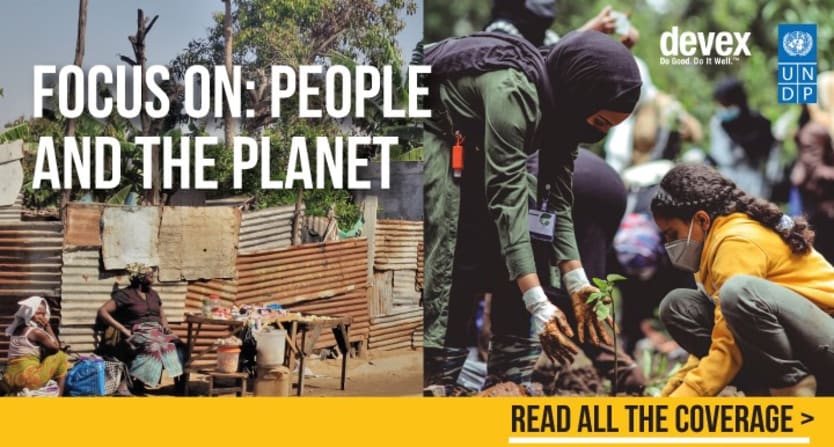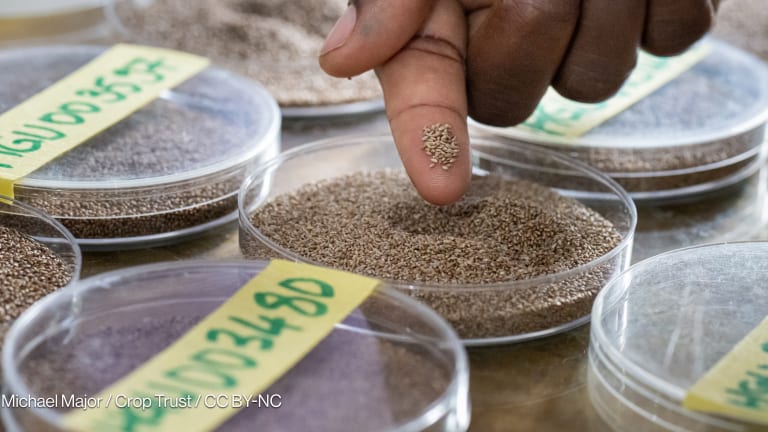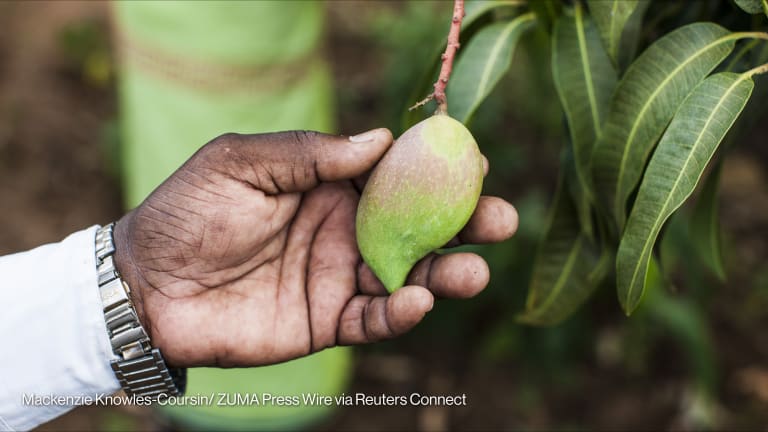
CGIAR has launched a new 10-year strategy to better unite its agricultural research centers around the world and put climate change at the heart of its agenda for “radical realignment” of food systems.
This is the first time the 50-year-old coalition of 15 centers and 10,000 staff members in 70 countries is united behind a common strategy, which lays out how it will contribute to progress on the Sustainable Development Goals. The document makes the case that a systems transformation approach for food, land, and water is needed if the world is to reach the goals by 2030.
“The climate crisis is at the forefront of the threat to our ability to provide good nutrition for all people while staying within environmental limits. We work primarily with smallholder farmers who are not as resilient to climate as they need to be,” said Claudia Sadoff, managing director of research delivery and impact at the CGIAR System Organization.
“The challenges that we’re addressing are much more integrated and complex — increasingly so as climate change progresses, as we approach planetary boundaries, and as we see the greater interconnectedness of the world and its challenges,” she said, adding that COVID-19 “has been, unfortunately, a tremendous reminder of just how interconnected our food, land, and water systems are — how interconnected the health of our communities and our planet are.”
Part of our Focus on: People and the Planet
This series explores how climate change and other planetary imbalances impact the rising trend of human inequality. We look into the potential solutions to eliminate inequality and support a healthy planet.
Sadoff said that agriculture is both a driver and victim of climate change — contributing to greenhouse gas emissions but also experiencing adverse effects of variable temperatures and rainfall. The CGIAR system’s strong field presence, knowledge of country conditions, and farmer networks makes it an ideal catalyst for food systems change, she said, noting that CGIAR is already engaging on the 2021 United Nations Food Systems Summit.
The strategy seeks to address issues such as land degradation, deforestation, depletion of water resources, and pollution. In addition to climate adaptation and mitigation, it has four other “impact areas”: nutrition, health, and food security; poverty reduction, livelihoods, and jobs; gender equality, youth, and social inclusion; and environmental health and biodiversity.
If agriculture and climate targets are not better aligned, more than 840 million people could be undernourished by 2030 and climate-related disasters could displace 200 million people by 2050, according to CGIAR.
The strategy will include three-year investment plans, and CGIAR is calling on donors to double funding to research and innovation to fight hunger and climate change by 2030. Sadoff said it will also look for more opportunities to collaborate with the private sector.
“We feel quite strongly that this is an area of work that is arguably underinvested globally,” Sadoff said. “We’re hoping to raise awareness of the contribution that food systems can make in these other impact areas as well. So [we will] approach perhaps funding partners in these other areas that may not consider themselves first and foremost interested in agriculture but might be particularly interested in gender equality or biodiversity or climate.”
“The climate crisis is at the forefront of the threat to our ability to provide good nutrition for all people while staying within environmental limits.”
— Claudia Sadoff, managing director of research delivery and impact, CGIAR System OrganizationThe new strategy aligns with a reform effort called One CGIAR that began about two years ago and intends to unify system governance to better wield its influence for changes to the food system. It will focus the system’s mission and impact on the 2030 goals; create a One CGIAR common board; better integrate all its institutions under management and policies; develop a new research modality; and seek increased, and pooled, funding.
Much of the transition will take place this year, while CGIAR will launch its new portfolio in 2022. Sadoff said the agricultural research centers will retain their individual branding but the new structure will allow CGIAR to be more agile and responsive to the farmers and communities where it works.
Although the One CGIAR process began before the pandemic, COVID-19 has only shown why the systemwide reform is needed, she said.
“This recognition of how fragile food systems are is something that I think is very much exposed by COVID,” Sadoff said. “We increasingly are recognizing the ‘One Health’ aspects of our food systems that we need to address, in, I think, a more holistic way — this idea of One Health, that our food, our human health, our animal health, and our ecosystem health are all very deeply interconnected. So when weaknesses or disruptions occur in one space … we see potentially devastating consequences.”
This focus area, supported by the U.N. Development Programme, explores how climate change and other planetary imbalances impact the rising trend of human inequality and vice versa. Visit the Focus on: People and the Planet page for more.









